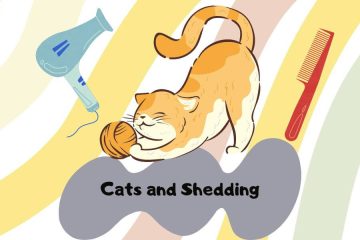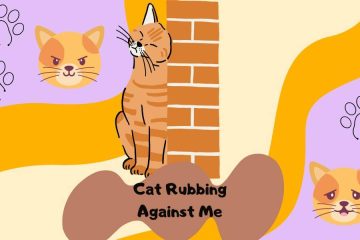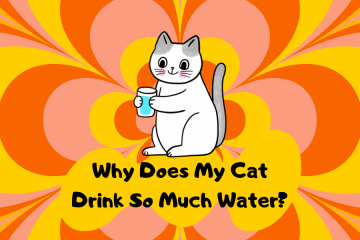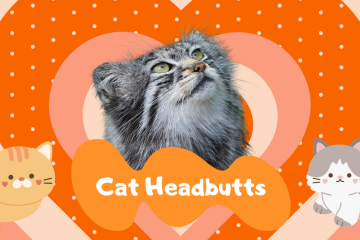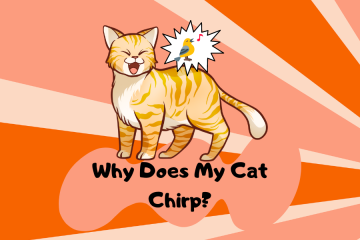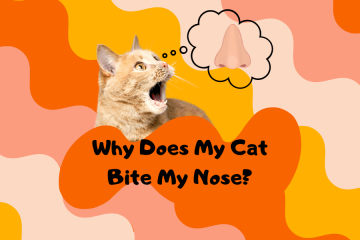Many cat owners have been perplexed as to why their cats enjoy sucking on blankets – could it be relaxation, comfort from the smell of fabric or wool, boredom or loneliness? This cat behavior is usually normal and not harmful but some breeds such as Siamese are more prone due to needing stimulation. If your furry friend has excessive licking/sucking habits then giving them toys for enrichment activities during the day may help reduce the urge to suckle!
Why Does My Cat Suck on Blankets and Wool?
There are a few different reasons that cats may suck on blankets and purr. One reason is that it helps them to relax and feel calm. Kneading a blanket and suckling provides sensory input that soothes a cat and makes them feel more comfortable.
This behavior is often seen in kittens who have been taken away from their mother too soon, as well as in adult cats who are under stress. If your cat wasn’t properly weaned by their mother, they may continue to suckle or chew on objects that resemble fur. So if you wonder “why does my cat suck on blankets?”, know that cat suckling behavior is retained from kittenhood.
Cats have an incredible sense of smell, and will sometimes suck on blankets to get a whiff of their favorite owner. It’s not just the comforting scent that draws them in either – wool fabrics also tend to be naturally fragrant for cats! The next time your cat snuggles up on the sofa with you, they could very well be enjoying not only the warmth from your blanket but catching a subtle trace of your signature aroma as well.
If your feline friend seems a bit listless, it may be because they’re feeling bored. In this case, blanket-sucking can manifest as an instinctual attempt to entertain themselves and ward off loneliness – especially for indoor cats who don’t have enough toys or stimuli around them.
Is This Behavior Normal or Harmful?
Have you ever noticed your beloved kitty exhibiting a peculiar behavior, such as tenderly sucking on their favorite blanket? And now you are wondering “why does my cat suck on blankets?” Although it might be alarming at first glance, in most cases this is nothing to worry about. However, keep an eye open for other signs that could signal underlying issues beyond harmless cuddling with fabric companions.
If your cat is attempting to replace their kibble with cuddly blankets, beware! There may be an underlying issue they’re trying to tell you about – Pica. This compulsive disorder causes animals to eat non-food items like fabric and can indicate a nutritional deficiency. Don’t take any chances: get them checked out by the vet ASAP for peace of mind.
If your feline friend is repeatedly licking or sucking on a blanket (or any other object) with obsessive-compulsive behavior, it could be signs of stress and anxiety. To ensure lasting comfort for our furry friends, consulting with a veterinarian or certified animal behaviorist may help identify the source of this issue.
What Can You Do to Stop Your Cat From Sucking on Blankets?
If you’re concerned about your cat’s blanket-sucking behavior (e.g, that they may ingest loose threads), there are a few things you can do to help discourage it.
- Make sure your cat has plenty of toys and other forms of stimulation. If they’re bored, they may be more likely to turn to their blanket for entertainment. Providing them with toys, climbing trees, or even puzzle feeders can help keep their minds occupied and may help reduce blanket sucking.
- Try using a different type of fabric for their blanket. Some fabrics, like wool, are more appealing to cats than others. If you’re using a fabric that your cat is particularly drawn to, try switching to something less appealing. This may help reduce the urge to suck on the blanket.
- If your cat is sucking on their blanket as a way to self-soothe, you can try providing them with a warm, comfortable place to sleep that feels like their own. A cozy, cave-style bed may help provide the security they need and could reduce the desire to suck on their blanket.
To put an end to blanket sucking habits in cats, make sure they have plenty of stimulation and cozy sleeping arrangements. Offer up less desirable fabrics for their blankets and rest assured that this is usually a natural behavior – nothing to be worried about!

Our Reader’s Story
My cat, Sandy, loves to curl up on my lap and suck on my blanket. At first, I thought it was just a weird quirk, but I soon learned that there was a deeper reason behind this behavior.
It turns out that cats are comforted by the smell of their owners. When Sandy sucks on my blanket, she is actually trying to get closer to me. The blanket smells like me, and it gives her a feeling of security.
What Are Some Benefits of Sucking on Blankets for Cats?
Now that you know the answer to the question “why does my cat suck on blankets?”, what’s next? While some people may view sucking on blankets as a weird or quirky behavior, there are actually a few benefits for cats who engage in this behavior.
For cats who experience high levels of stress or don’t have as many opportunities for socializing, blankie-sucking could be the key to relaxation and security. This cozy habit is a great way for feline friends to feel comforted in unfamiliar environments or difficult times.
Even cats need to take care of their teeth, and a blanket can be an excellent tool in helping with that. Through the act of sucking and chewing on it, plaque will be removed from its pearly whites which could help keep dental issues away for years to come!
While it may look strange, if you notice your cat sucking on a blanket or other fabric item don’t fret – despite seemingly odd behavior there are actually advantageous reasons for them to partake in this activity. Not only is it normal and harmless but can also provide some physical comfort that cats find soothing!
Would you like to know more about your cat’s behavior? Find out why your cat bites your nose!
Are There Any Risks Associated With This Behavior?
While blanket sucking is usually a normal and harmless behavior, there are a few risks that you should be aware of. If your cat is swallowing lint that comes out of the fabric, this could cause a gastrointestinal blockage. Additionally, some fabrics might be dyed or washed with compounds that are toxic to cats.
If your feline friend seems to be using their blanket as an obsession, it may be a sign of trouble. Speak with the vet for continued care, but in the meantime give them a cozy cover that won’t leave lint behind – this way you can help protect their delicate digestive system from any potential harm!
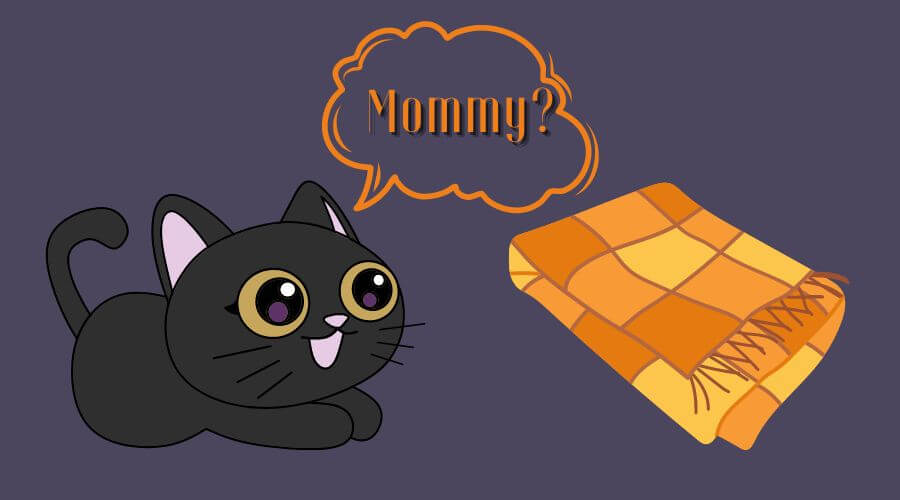
Are Some Cat Breeds More Prone to This Behavior?
Some cat breeds are more prone to sucking on blankets than others. Siamese, Balinese and Tonkinese cats, for example, are notorious for this behavior. This can be a nuisance, as it can make the blankets wet and dirty. It’s not entirely clear why some cats are more inclined to suck on blankets than others, but it’s likely due to boredom or a need for stimulation. So if you’re asking yourself “why does my cat suck on blankets?”, the answer might be that they’re a bored Siamese!
Is There Anything Else You Should Know About This Behavior?
If your cat is sucking on their blanket, there’s no need to worry – in most cases, it’s perfectly normal and harmless. However, if you notice your cat excessively licking or sucking on their blanket, or if they’re swallowing large amounts of lint, it’s important to speak with your veterinarian to rule out any underlying medical problems.
If your feline companion seems fixated on its blanket, it may be time to invest in a chew-proof version made of sturdy materials. Not only will this prevent any damage to your furniture, but can also keep them from hurting themselves due to excessive sucking – if that’s the case, seek out help from an animal behavior expert for assistance.
Frequently Asked Questions
Why Is My Cat Following Me Everywhere?
Cats may follow their owners around as a sign of affection and attention-seeking behavior. Cats may also follow their owners to get access to food and resources, such as a cozy lap or a warm bed.
Does My Cat Love Me?
Cats show their love for their owners in a variety of ways, such as head-butting, purring, kneading, licking, and cuddling. If your cat displays any of these behaviors, it’s a sign that your cat loves you.
Why Do Adult Cats Suckle?
Adult cats may suckle as a comforting behavior, similar to the way a kitten would do when nursing. It’s usually a sign of stress or anxiety, and is often seen in cats who have been separated from their mother or littermates at a young age.
Why Do Cats Knead Fuzzy Blankets?
Cats knead fuzzy blankets as a way of marking their territory and claiming ownership. Kneading also has a comforting effect on cats, as it reminds them of the warmth and security they felt while nursing from their mother.
Elizabeth Randolph is a freelance writer and pet enthusiast who has been writing about pets and their care since 2003. She has authored articles on a variety of topics related to pet care, including nutrition, training, health, and behavior. Elizabeth lives in Northern California with her husband and three cats. When she’s not writing, she enjoys hiking and spending time with her family and friends.


